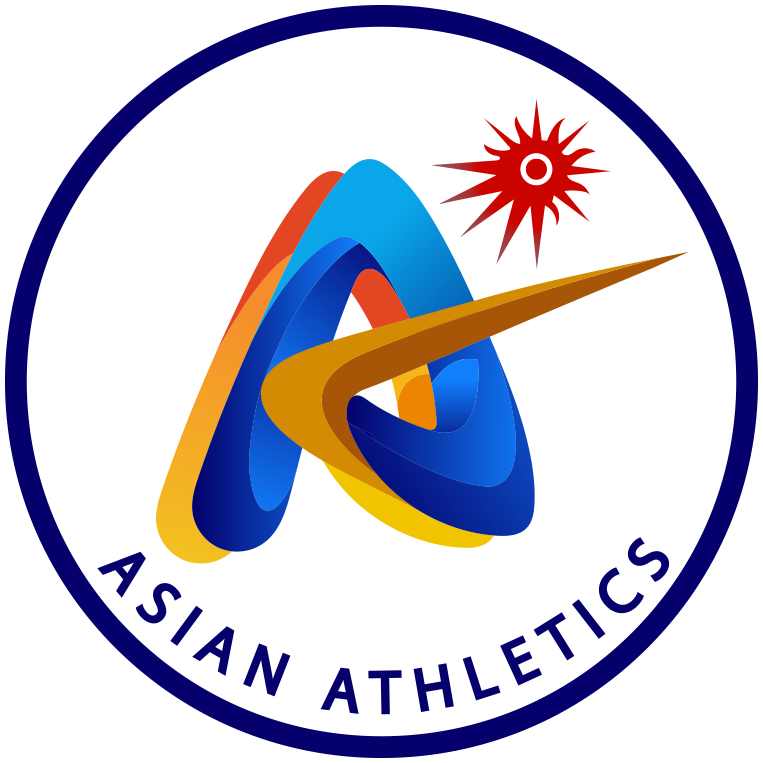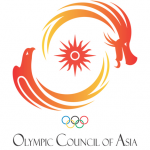Written By K. P. Mohan

China held its own by winning two gold medals, the same as the country had done in Rio five years ago, as the 32nd edition of the Olympic Games wound up at the Olympic Stadium in Tokyo on Sunday (8 Aug).
The new entrants to the golden club in Olympic Games athletics were India through javelin thrower Neeraj Chopra, and Qatar which won it through the best high jumper of our times, Mutaz Essa Barshim. The Qatari shared the gold with Italian Gianmarco Tamberi after they tied at 2.37 metres.
Overall, Asia collected ten medals, three less than in Rio. The gold count remained the same at four. More could have been expected considering the home advantage Japan had but given the weather conditions even at Sapporo, where the road events were shifted two years ago in order avoid the heat and humidity in Tokyo, even the host nation could not come up to expectations, ending without a gold but with a silver and a bronze each.
China was seventh in the athletics medals tally, India and Qatar joint 18th with four other teams, Japan 29th and Bahrain 31st. The final tally once again brought into focus the chasm that exists between the top and the lower-placed teams and the huge task that it is to win an Olympic athletics medal. Compared to the previous editions, the US was below par, claiming seven golds (five of them by the women) in a total of 26. In Rio it had 13 gold in a total of 32.
A record number of 83 teams reached the finals, 43 of them winning medals, and 23 gold medals, which showed the spread of the sport. Alas, due to the pandemic, empty stands barring team members and officials, greeted the athletes. Road events had many spectators lined up on the routes in Sapporo.
For India, this edition of the Games was a breakthrough since Independence in 1947. A country of 1.35 billion had been hoping and praying all these years for an athletics medal that eluded them. Milkha Singh in the 400m in 1960 and P. T. Usha in the women’s 400m hurdles in1984 were the closest to a medal, finishing fourth by the narrowest of margins.

Chopra, the 23-year-old javelin thrower from India’s Northern State of Haryana, nurtured through the country’s junior programme and who in 2016 won the World under-20 title with a junior world record, did not make it just a medal. He won the gold (87.58m), a surprise one against German Johannes Vetter, the man with an awesome record of 90-metre-plus throws in javelin history behind world record holder Jan Zelesny of the Czech Republic.
Pakistani Arshad Nadeem (84.62m), with whom Chopra had struck a friendship the past few years, was fifth. Back home, amidst all the unprecedented adulation and receptions, Chopra told a TV channel that he would have liked Nadeem to finish on the podium so that Asia’s pride would have been boosted.
Vetter could not cope with the fast surface on which, he said later, world and Olympic records were being set but which was not suitable for his style of block. He said Chopra had another block and he proved successful. Most others managed with the surface in a below-par competition but there were a few who felt the same way as Vetter and yet came up with enough to win medals. The Czechs, Yakub Vadlejch (86.67m) and Vitezslav Vesely (85.44m), all of 38 years, took surprise silver and bronze. Pakistani Arshad Nadeem (84.62m) finished fifth, his best placing in a global meet.
Vetter said he tried his on the surface during qualification and at warm-up but just could not do it. He slipped on his second throw in final and seemed to have hurt his toe while he also fouled his third, leaving him out of the final eight for the last three rounds. Poland’s Marcin Kruskowski agreed with the German about the unsuitability of the surface for javelin throw.
Once the first three throws were through, it was clear Chopra would win the gold, for, there was none to match his 87-plus. Two throwers who had crossed 89 metres before the Games, Krukowski and former Olympic champion Keshorn Walcott of Trinidad and Tobago could not come up to expectations and finished 28th and 16th respectively in qualification round.
For Indian athletics, Chopra’s gold medal has provided the much-needed impetus in a period of lesser returns from bigger investments following the success of the athletes in the last Asian Games in Jakarta in 2018.

Barshim and Tamberi tied for the high jump gold and a countback could not break the deadlock of 2.37m, a season best for both. The two agreed to share the gold rather than go for the jump-off, as permitted in the rules, and embraced and did an impromptu jig on the track. They were overjoyed, Barshim especially for bringing home his country’s first gold after he himself had won silver medals on the last two occasions. He shared the silver with two others in London.
China had two gold winners in woman shot putter Gong Lijiao and javelin thrower Liu Shiying. Gong was the favourite for the gold having led the season lists, having been silver medallist in 2012 and one who was into her fourth Olympics. She stretched her personal best from 20.29m to 20.58m and no one came near her.

“I really wanted to break the 21 metres line, but today I didn’t make it, but I am still very, very happy to win,” said Gong after the victory.
Li Shiying was a surprise gold medallist, the first gold for China in javelin, though both she and team-mate Lu Huihui (fifth with 63.11m) were among the contenders for the medals.

Li Shiying’s opening throw of 66.34m clinched the battle since such a stiff task of matching it looked beyond the capacity of the rest of the field including season leader Maria Andrejczyk of Poland who eventually took the silver with 64.61m. Australian Kelsey-Lee Barber (64.56m) took the bronze. Lu Huihui ( 63.41m) finished fifth. Andrejczyk had topped the season charts with 71.40m last May and though she produced a fine series in the Games she could not match Li Shiying.
Woman hammer thrower Wang Zheng (silver at 77.03m) and woman 20km racewalker Liu Hong (bronze) claimed the other medals for China.
Liu Hong had come in with the task of defending her Rio title but a 30-year-old Italian, Antonella Palmisano, dashed her’s and others’ hopes with a 1:29:42 finish in hot and humid weather. Italy provided another surprise in racewalking when Massimo Stano took his first global title winning the men’s 20km walk.
Italy also produced two stunning results on track, Lamont Marcel Jacobs, a relatively little-known sprinter claiming the men’s 100m gold in an Area record of 9.80s and later figuring in a sensational 4x100m victory that spoilt the show for the British, Canadians and the Chinese. The US failed to qualify for the final, the first time since the 2008 edition of the Games.
Though Japan took the silver and bronze in men’s 20km walk through Koki Ikeda and Toshikazu Yamanishi, the failure of the Asians to win a gold from the walk events turned out to be a surprise.
For the Chinese, Liu Hong’s bronze was a consolation given the fact that they had swept the women’s 20km medals at the 2019 World championships with Liu Hong claiming the gold. In the men’s 50km walk event, Asia did not win a medal in this edition of the Games.
Despite a sixth-place finish in the 100m final, Su Bingtian generated tremendous interest in China and across Asia as he clocked a fabulous personal best and Asian record of 9.83s in the semi-finals to project himself as a strong contender for a medal. A false start seemed to have upset the 31-year-old Asian Games champion and the highly-rated Chinese as he got off to a poor start the second time.
Bahrain’s Kalkidan Gezahgne provided Asia with its fourth silver, coming second to Dutchwoman Sifan Hassan in the women’s 10,000m. Hassan completed the distance double and won the bronze in the 1500m also.
Elaine Thompson-Herah of Jamaica scored the double double in women’s sprints, defending both her 100m and 200m titles won in Rio successfully. She clocked 10.61s, the second fastest timing behind the late world record holder Florence Griffith-Joyner (10.49s in 1988) for the 100m and world-leading 21.53s in the 200m.
Eliud Kipchoge of Kenya also won back-to-back marathon titles. The 36-year-old world record holder experienced no difficulty in pulling off an expected victory in the hot weather to add another chapter to his glorious career.
Three world records were set during the Games. The records in the men and women’s 400m hurdles were bettered, perhaps on expected lines by Norway’s Karsten Warholm (45.94s) and American Sydney McLaughlin (51.46s).
Venezuela’s Yulimar Rojas posted a world record in women’s triple jump, soaring to 15.67m. It was widely forecast before the Games began that Rojas would be gunning for the world record that had stood the test of time since 1995 in the name of Ukraine’s Inessa Kravets (15.50m).
Apart from India, Burkina Faso also won its first ever Olympic medal, a bronze in men’s triple jump through Fabrice Zango.
American Allyson Felix became the history’s most medal-winning Olympian athlete with 11 including seven gold medals from five Olympics. She took the bronze in the 400m and was also part of the longer relay team.
The athletics events produced excellent overall performance with 12 Olympic records, 28 Area records and 151 National records being set to make it as the “most globally successful edition of the Games for athletics.”
The World Athletics President, Lord Sebastian Coe, thanked the Organising Committee for providing the best possible platform on which the sports stars could shine.


